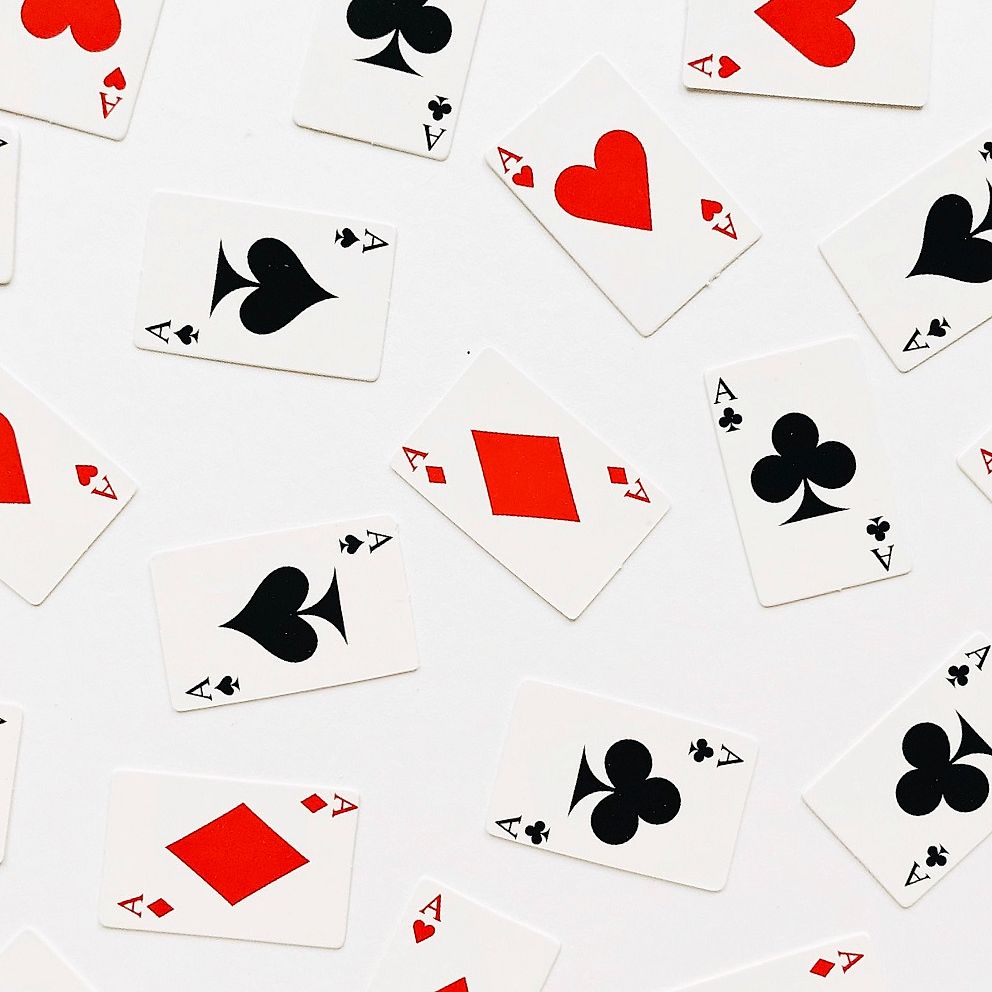Poker
Poker is probably the most famous and popular card game in the whole world. Its origins can be found in poker enthusiasm even before the 16th century. Originally, poker was thought to have its roots in the Persian card game As-Nas, but all signs now point to a German origin of the card game classic. Poker is much more than luck because it requires mathematical thinking mechanisms and, at the same time, a logical approach.
Poker is played with 52 playing cards, and there are four different types of games.

Poker Rules – General
The rules of poker are basically very similar for all three game branches. Here and there, however, small differences can be found. For example, already in the name of the game designation, the player can recognize how much can be set maximally per round. Thus, the designation No Limit indicates that the player can use his entire number of poker chips at any time. If, on the other hand, Pot Limit is played, then only as much can be bet as is currently in the pot. Another type is Fixed Limit, where the maximum bet is set before the round. A modified form of this is the Pot Limit because the maximum bet is in a fixed range.
The number of players at the poker table varies. Tables with six to ten players are common, although 14 players often take a seat at a poker table in American casinos. In addition to the players, there is also a so-called dealer at each table. This person is responsible for the proper conduct of the game and has the not entirely unimportant role of the dealer.
Texas Hold’em
In order to start playing, you must place an Ante bet to which a Blind bet of the same value is automatically added. The first one represents the actual bet. The second one is a bonus linked to the point. The player can also place a Trips bet. This last bet pays on a variety of poker hands, which we will see later, whatever combination is obtained from the bank.
At this point, after the first bets have been placed, the initial two hole cards are served to the players in play, after which the dealer deals two hole cards to himself as well. Here the player can make his first choice: he can raise the bet. The value of this raise can be x 4 (i.e. four times the value of your ante bet), x 3 (3 times the value of your ante bet), or you can opt for the Check and see the next round of cards without adding more chips.
Flop
At this point, the dealer deals with the flop, the first three community cards, and the player can decide how to act.
Turn and river
Let’s now look at the turn and the river (the fourth and fifth cards on the community card table). The turn and river result in two separate rounds of betting.
Showdown
The last player to bet or raise during the final round of betting shows his cards first. If no player bets during the last round of betting, the first player to the left of the dealer, who did not pass, must show his cards first.
Omaha
The first and most important step in learning Omaha poker rules is to have at least a basic idea of Texas Holdem. Then, even if you are a beginner, you will do just fine and have no problem coming up with your own Omaha poker strategy.
Omaha poker scores also do not differ from Holdem, but you will still have to pay attention to some variations in the style of play.
The main difference – each player receives four cards that are not shown to others, called hole cards.
7 Card Stud
There are many different interpretations of the rules of Seven Card Stud. The rules that are usually agreed upon (and used in tournament poker) are these:
- Each player is dealt two cards “face down” (picture invisible to others).
- Players then bet.
- Each player is dealt one card ‘face up’.
- Another round of betting follows.
- For the fourth, fifth and sixth cards, the same thing happens.
- However, the last card is dealt face down.
- Bets can be placed for the last time.
5 Card Stud
In 5 Card Stud poker, the principle of the game is the same as in 7 Card Stud. The only difference is that in this variant of poker, the players have 5 cards in their hands at the end of the last round.
Poker language – Playing like the pros
If you want to play poker the right way, you can’t get around the technical terms.
- Blind – The mandatory bet for each round (There are Small and Big Blind).
- Raise – To raise another player’s bet.
- Check – Also referred to as “shoving.” If you do not want to bet anything, you can “check” and pass.
- Fold – If you do not want to match another player’s bet, you must “fold”.
- Call – To call and/or raise a player’s previous bet.
- All-in – When a player bets all his remaining “assets” (chips, money, etc.) in one go, this is called “all in”.
- Showdown – All players turn over their cards.




